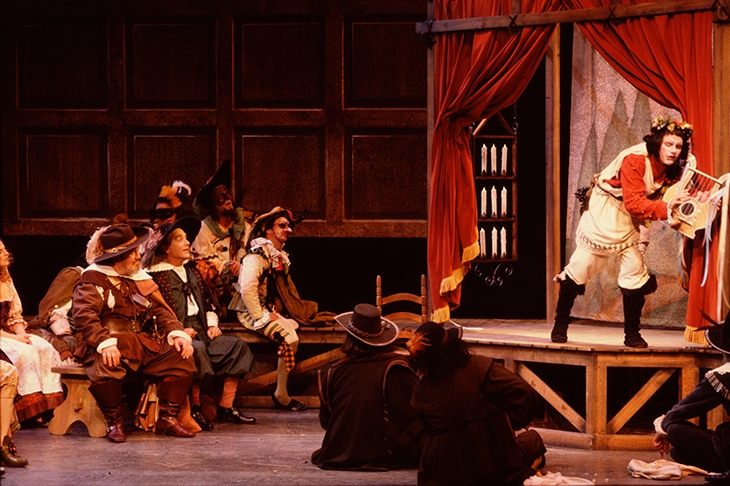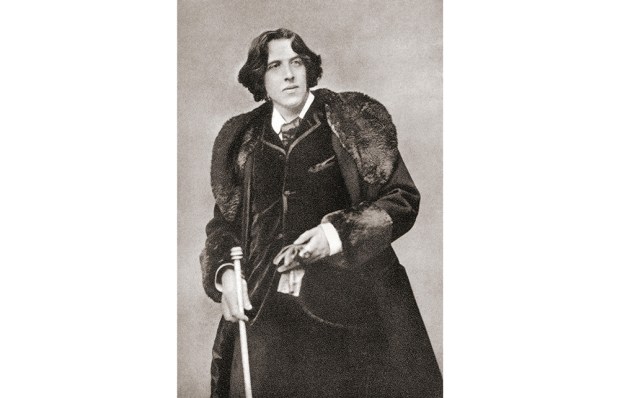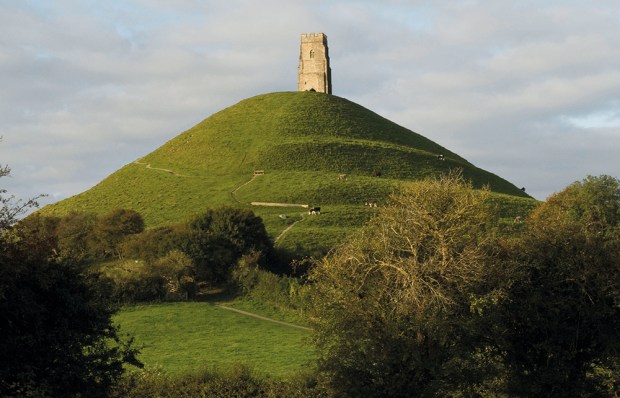The greatest pain of lockdown has been, for me, the absence of am-dram. In one half of my life I’m your financial columnist with a constant eye on the villains and heroes of the global business scene. In the other half, I’m the panto dame of my Yorkshire home town and the veteran of dozens of other stage roles — from Canon Chasuble in The Importance of Being Earnest to Mole in The Wind in the Willows — in the friendly little arts centre that we created for our community 30 years ago. My theatrical side-career over all that time has been creative, liberating, challenging and the fulcrum of my social life. But since I last trod the boards in February (in an Alan Bennett vicar sketch) it has, like so much else, been reduced to no more than an occasional Zoom. And I’m bereft.
So it has been some consolation to read two books which, in very different ways, record and celebrate the rich story of Britain’s amateur theatre. Michael Coveney spent 45 years as a critic of the professional theatre, successively for the Financial Times, the Observerand the Daily Mail, and his approach is serious and respectful. He has travelled to unearth histories of many of Britain’s long-established amateur groups and venues, from the lovely 18th-century Theatre Royal, Dumfries, saved from demolition by local thespians in 1959, to the extraordinary Minack Theatre, carved into a Cornish cliff. Included are two to which his title alludes: the Questors Theatre in Ealing, a founder member of the Little Theatre Guild which was at the heart of a post-second-world-war flourishing of am-dram, and the Renegades Company in Ilford, where the young Coveney first found himself drawn to greasepaint in the late 1950s.
And when I say ‘respectful’, I mean that Coveney is not of the school that looks to am-dram for what he encapsulates as ‘the hilarity of mishap’, meaning the sort of coarse acting and backstage incompetence that Michael Green once wrote a very funny book about. Rather, he makes the case for its worthiness, the closeness of much of its work to that of at least the lower ranks of the professional, and its role as a seedbed of talent.
In the book’s foreword, Kenneth Branagh — now patron of the Little Theatre Guild — points out that by derivation from the Latin, an amateur is someone who loves what he does, rather than simply someone who’s not paid, and that his respect for the unpaid theatre dates from his own experience of it as a teenager in Reading. Much quoted, in similar vein, is Ian McKellen — who ‘never trained as an actor except in the non-stop variety of his experience as an amateur’, beginning as a schoolboy in Bolton. We’re reminded that Glenda Jackson started out playing maids with a troupe in Hoylake and Ben Kingsley joined the Salford Players while working as a lab technician.
But having witnessed the pro-am divide at close quarters, I can’t help wondering whether Coveney and his sources are all just being polite. The truth is that most professional actors (like surgeons, solicitors and plumbers) believe the essence of their art is inaccessible to those who merely dabble at it: pros act from the inside with meditational intensity; amateurs stumble over the furniture and struggle to remember even the shortest lines. I once heard a grande dame of the stage opine: ‘What I really hate about amateur shows is when you hear the audience coming out and saying how good it was.’
Jenny Landreth’s Break a Leg is, in that context, a more honest account of the modest ambitions of most amateur theatre — though less diligent as a history, and the author herself sometimes gets in the way. It’s entertaining to hear about her parents’ courtship as members of Highbury Little Theatre in the 1950s but irritating to know how she feels about going to lunch in the Army & Navy Club (‘I’m more a wipe-down surface and things-with-chips kind of person’) to meet veterans of the Midland Bank Dramatic Society — whom she paints rather as an anthropologist might describe a lost Amazonian tribe.
But her narrative feels completely authentic when we reach the final rehearsals and opening night of a Highbury production of Terence Rattigan’s Variation on a Theme. She reminds us of the mythology that
the first dress rehearsal needs to be good, so everyone knows they can do this, and the last one needs to be bad, so they don’t take it for granted. Then everyone and everything is heightened for the first night, running on the adrenaline of terror…
And the reader’s heart goes out to her Highbury actors when that first night fails to light up: ‘Nobody really believes in their performance… the body language is all crossed arms and downcast eyes.’ Yet what a relief to learn that two weeks later, all has changed:
They’ve got there. The cast are relaxed… and once the lines start to flow, there is something entirely different being created up there. It has become what it should have been at the start.
That’s the true am-dram journey in a nutshell. I’ve lived it many times over — and as soon as Covid and Boris allow, I’ll be back for more.
Got something to add? Join the discussion and comment below.
Get 10 issues for just $10
Subscribe to The Spectator Australia today for the next 10 magazine issues, plus full online access, for just $10.
You might disagree with half of it, but you’ll enjoy reading all of it. Try your first month for free, then just $2 a week for the remainder of your first year.















Comments
Don't miss out
Join the conversation with other Spectator Australia readers. Subscribe to leave a comment.
SUBSCRIBEAlready a subscriber? Log in